Post
A catch
Save a catch to start your fishing logbook. You will be able to to share it with the community if yo want!
A fishing trip
Post an ad to go fishing with other fishermen
Save a catch to start your fishing logbook. You will be able to to share it with the community if yo want!
Post an ad to go fishing with other fishermen
Share a thought, a question with the community
My favorite cities
×Join our 814 fishermen and our 5 cofishermen in Lower-Shiplake in Oxfordshire. The fishing forecast is currently 2.4. The most caught fishes here are the pumpkinseed fish, the spined stickleback , the vendace fish and the crucian carp. Come try the most famous fishing techniques like the tips for jig fishing or cast fishing material for mackerel fish, the stalking fishing technique, boat fishing for bass or the bolognese fishing.
Our fishing forecast of Lower Shiplake indicates the best time to go fishing in this city.
The Pumpkinseed fish
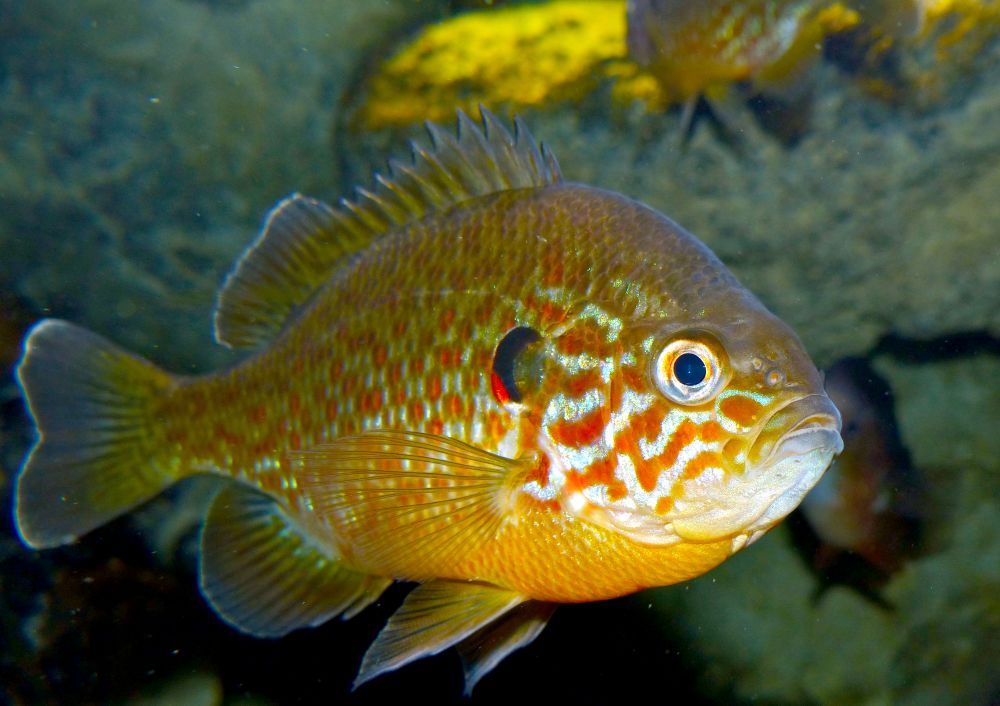
The Pumpkinseed fish belongs to the Centrarchidae family. It is a migratory fish that can reach a weight of 40 g to 50 g for a length of 20 cm. But the largest specimens can reach a weight ranging from 3 kg to 4 kg for a maximum size of 40cm. The life span of the sun perch is 8 to 10 years. Breeding takes place in the months of May to August. A female can lay between 1500 and 3000 eggs. It is fished all year round, but the best times are in spring and autumn. Its high body is very flat laterally. Its mouth is terminal, small and slightly oblique. The caudal fin is slightly forked. The two dorsal fins are united, giving the impression of being one. The pectoral muscles are long and pointed. The anal fin has 3 sharp spines. The coloring is brilliant with green and blue touches on the back and rust colored spots on the flank. The cheeks are crossed by bright blue lines, particularly marked in males. The operculum is wide and has a black spot bordered by a scarlet red spot in the male, which may be absent or less marked in the female. The male is larger and more colorful than the female.
The Pumpkinseed fish is a famous fish you can catch in Lower Shiplake.The Spined Stickleback
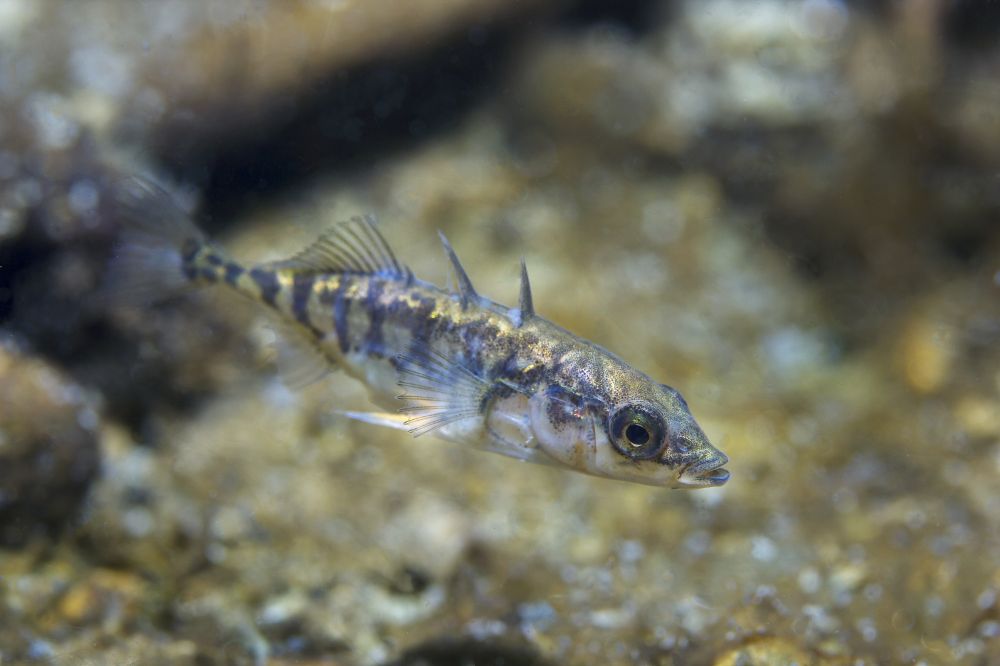
The Spined Stickleback belongs to the Gasterosteidae family. Females are larger than males, measuring 4 to 5 cm and males 3.5 to 4 cm. Its longevity varies from 3 to 5 years. The spined stickleback breeds from March to July to June depending on the region. Fertility is 100 to 400 eggs. It can be fished all year round. The spined stickleback is a small fish whose body is elongated and laterally compressed. Along the lateral line, the body is not covered with scales but with bone plates (badges). The caudal peduncle is very narrow. Three isolated spines are present on the back in front of the dorsal fin. The muzzle is pointed and has a terminal mouth. Pelvic fins are also replaced by two thorns. Its back is greenish brown with black on the back, the sides are silvery grey below the lateral line and the ventral side is whitish. The male's silvery coat turns a bright red color at the time of reproduction.
The Spined Stickleback is a famous fish you can catch in Lower Shiplake.The Vendace fish
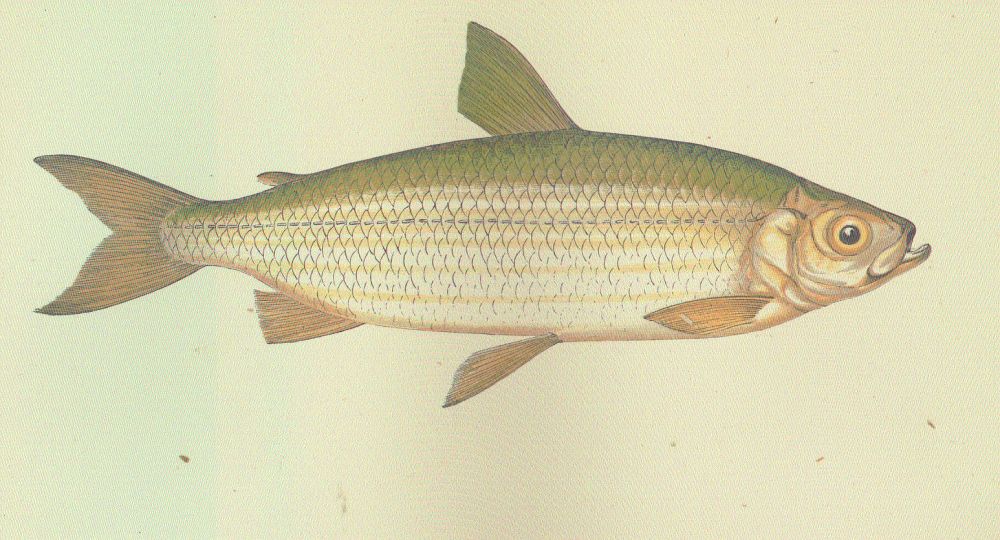
The vendace fish belongs to the Salmonidae family. Its average size is 45 cm and its weight is 1 kg. The oldest specimens observed were 10 years old. It breeds from October to December. The female lays 30,000 eggs per kg of weight. It is fished from March to December. The vendace is a small, slender and streamlined fish that is very easy to confuse with a bleak, a small lavaret whitefish or a peled whitefish. Unlike the bleak, the vendace is a member of the Salmonidae family, which is why it has a fat fin. It differs from the lavaret and peled whitefish by its much longer lower jaw. In the lavaret whitefish, the upper jaw is longer and in the peled whitefish the jaws are of the same length. It is silvery on the sides, with a white belly and a brown-green, grey-blue or blue-green back.
The Vendace fish is a famous fish you can catch in Lower Shiplake.The Crucian Carp
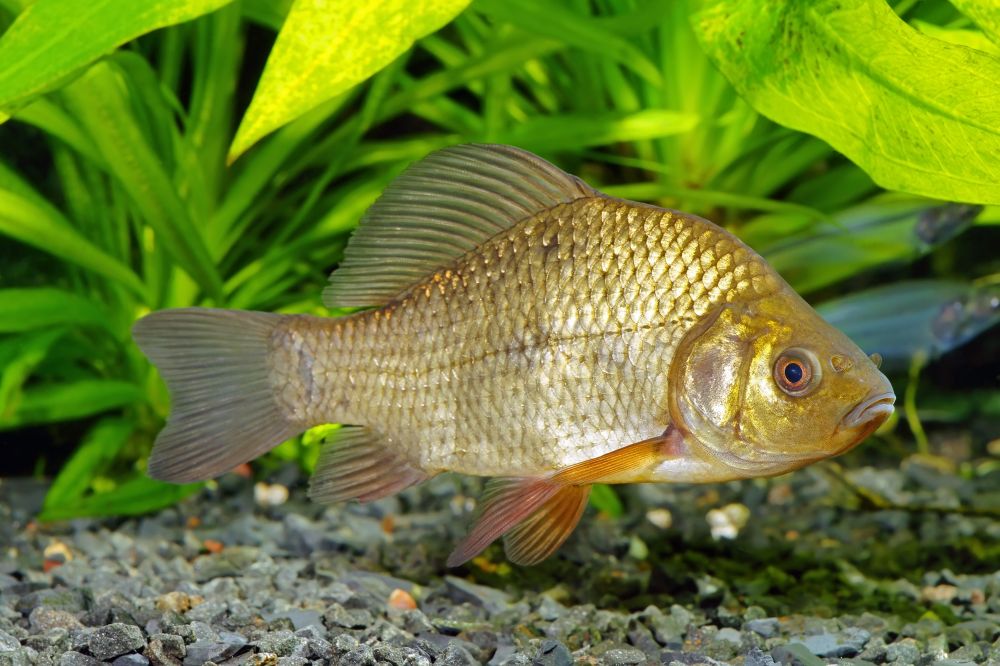
The Crucian Carp belongs to the Cyprinidae family. Its average size is 45 cm for 3 kg. It can live up to 15 years. It breeds from Mai to June. The female lays up to 300,000 oocytes. It can be fished from spring to fall. The Crucian carp is ovoid, stocky and laterally compressed. The protruding back gives it a high body. The most common specimens have an average size of 15 cm and a weight of about 250 g, but they can reach more than 50 cm and a weight of 4 kg. The head, small and conical, has no barbels. The pectoral and ventral fins and the anus are slightly rounded and have a reddish colour. The dorsal fin is characterized by a convex line. Finally, the caudal is slightly indented, and has 20 soft rays. Large scales cover the body and 31 to 36 scales run along the lateral line. Overall, it is greenish in color, dark on the back, with golden reflections on the sides and lighter on the belly. A black spot at the base of the caudal fin characterizes juveniles of this species. This stain disappears with age.
The Crucian Carp is a famous fish you can catch in Lower Shiplake.The Three Spined Stickleback
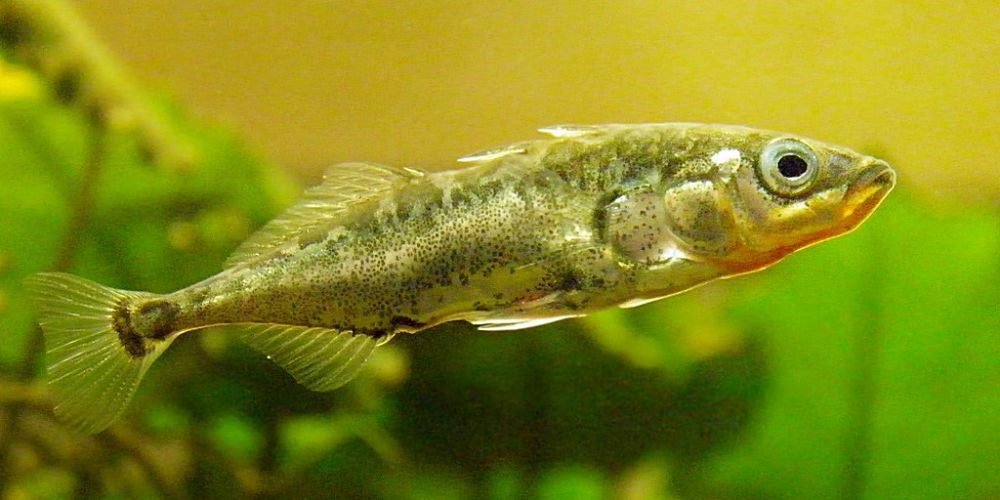
The three spined stickleback belongs to the Gasterosteidae family. The usual size of the three-spined stickleback is 4 to 5 cm for females, with males being a little smaller, about 3 to 4 cm. The life span of the three-spined stickleback varies from 3 to 5 years in natural environments and up to 8 years in captivity. Spawning season extends from March to June. Fertility is 200 to 400 eggs. It is fished from June to March. The three-spined stickleback is a tiny fish with a tapered, laterally compressed body. Its head is quite small, with fairly large eyes, and ends in a narrow mouth that is slightly oriented forward and upwards. The caudal peduncle of the three-spined stickleback is very narrow with a slightly indented caudal fin. The long dorsal fin is set far back, plumbing the anal fin. The dorsal fin of the three-spined stickleback is preceded by three spines, two long and one short, placed on the back of the fish. A curved spine also precedes the implantation of the anal fin. The pelvic fins are replaced by two thorns. The color of this fish is greenish brown for the back, with metallic reflections, silvery for the sides and whitish for the belly. Along the lateral line of the three-spined stickleback, there are no scales but bone plates called "badges", a kind of natural shielding that accompanies the thorny defenses of this fish.
The Three Spined Stickleback is a famous fish you can catch in Lower Shiplake.Our fishing forecast of Lower Shiplake indicates the best time to go fishing in this city.
Our fishing forecast of Lower Shiplake indicates the best time to go fishing in this city.
Our fishing forecast of Lower Shiplake indicates the best time to go fishing in this city.
